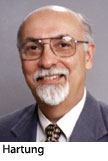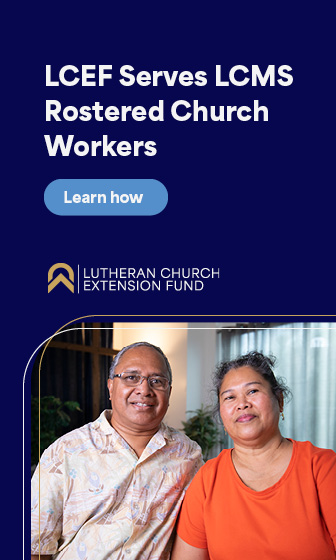with Dr. Bruce Hartung
Q: As a pastor, I know that I am called to preach and teach the Gospel.
After a number of years in the parish ministry, I think I have developed my preaching skills pretty well. I have participated in pastoral conferences about preaching and I’ve taken oral communication and speaking courses at our local community college. Feedback on my preaching from members of our congregation is positive.
I cannot say the same about my teaching skills. Leading confirmation instruction is somewhat frustrating for me, and teaching adult Bible class is really frustrating. My teaching style — at least the style I know best — is lecturing, with a little bit of discussion. As you may have guessed, that was the basic teaching style used when I was a student. But I sense that it is not the way to best teach today’s students — adult or confirmation age.
I am especially losing the energy to teach adults in a formal class setting. But I know that is necessary for me to do, and I want to do it in a way that is refreshing to me and to my “students.” Do you have any thoughts about how I might re-energize my teaching?
A: By realizing the need to re-energize your teaching, you have actually already started that process.
You say you have intentionally participated in continuing education activities to hone your preaching skills. Use that same strategy to work on your skills for teaching both adults and confirmation-age students.
teaching both adults and confirmation-age students.
In short, the answer is this: pursue developing your teaching skills in the same ways that you have developed your preaching skills. Your past strategy that has served you so well can be helpful again.
Find out which courses at your community college and what continuing-education opportunities would be most helpful to developing your teaching skills, then enroll in them. Learn about various methods of conducting classes, and try them out. Let your students know that you are trying different teaching methods so that they can tell you which approaches they think work best. Help those you teach to also teach you.
Research over the years indicates that when we are engaged in learning and growing in some aspect of our work, we are better buffered from “burnout” and we are energized for that work.
There is a whole body of knowledge available about teaching adults. And, there are many alternatives to lecturing that involve helping adults reflect on their own goals for learning, then to lay out a strategy for reaching those goals, and finally planning activities in the classroom and elsewhere that will lead to that achievement.
Traditional academic learning has indeed emphasized the lecture, which I have found easier to prepare than wrestling with how to facilitate active involvement of students. With a lecture, it is assumed that the teacher has the information, imparts it, and the learners simply need to take it in. But in effective adult education, the learner takes a more active part, and the teacher’s task is to structure activities that support the students’ more active learning.
You have raised a great issue, not only for your own growth, but for the teaching ministry of the 21st century. I hope that, in time, you will keep me posted on what you have learned and how your teaching has changed, as a result.
Rev. Bruce M. Hartung, Ph.D., is dean of Ministerial Formation at Concordia Seminary, St. Louis. He can be reached at hartungb@csl.edu.
Posted Oct. 27, 2006




